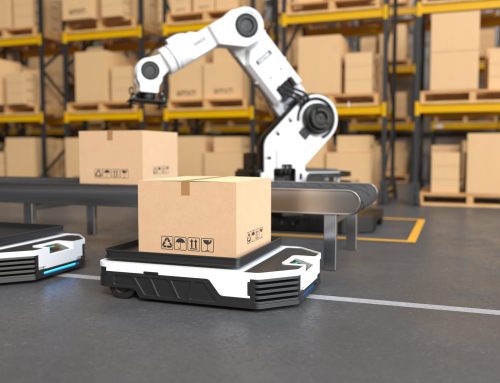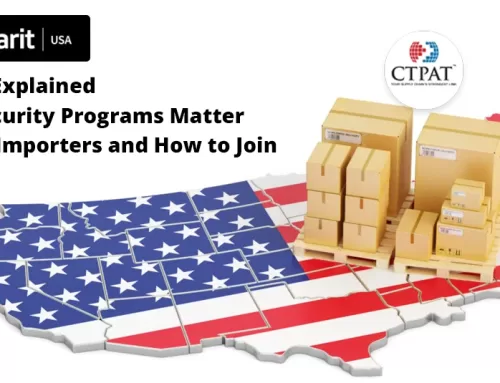The U.S. import landscape is set for a major regulatory change. On August 29, 2025, the de-minimis rule, which currently allows imports under $800 to enter duty-free with minimal customs documentation, will come to an end. For small e-commerce sellers, this change could dramatically reshape cost structures, supply chains, and customer expectations.
While the rule has long been a lifeline for small and mid-sized businesses, offering them the ability to import products in smaller volumes without hefty fees, its termination will require businesses to navigate significantly more complex import procedures. Let’s break down what this change means for you as a seller and how you can prepare to stay competitive.
A Quick Refresher: What Is the De-Minimis Rule?
The de-minimis threshold determines the minimum value of goods that can be imported into the U.S. without incurring duties or tariffs. For years, the U.S. allowed imports valued under $800 to bypass tariffs and enter with simplified clearance procedures.
This benefited:
- Small e-commerce sellers are importing low-value shipments.
- Dropshippers who relied on suppliers shipping directly to consumers.
- Consumers are enjoying affordable goods with little to no added customs costs.
However, with growing trade tensions, rising import volumes, and calls to strengthen domestic manufacturing, the de-minimis policy has faced increasing scrutiny.
Why Is the Rule Ending in 2025?
Several factors are driving this change:
Trade Policy Pressure
Lawmakers argue that the de-minimis rule undermines tariff enforcement, particularly as many low-value Chinese imports bypass duties under the current threshold.
Domestic Industry Concerns
American manufacturers and retailers believe the rule has placed them at a disadvantage, as overseas sellers could deliver goods duty-free while local businesses shouldered compliance costs.
Customs Oversight Challenges
CBP has raised concerns that the high volume of de-minimis shipments makes it harder to screen for unsafe, counterfeit, or restricted goods.
How Small E-commerce Sellers Will Be Affected
Increased Costs
Without de-minimis, all shipments will be subject to duties, tariffs, and potential hidden import costs. Small e-commerce sellers who relied on low-value shipments to maintain competitive pricing will need to adjust.
More Complex Compliance
Shipments that once required minimal documentation will now need full customs entries — including proper classification, valuation, and tariff payments — making customs brokers essential to avoid penalties.
Longer Delivery Times
Customs clearance will add delays to shipments. For businesses that promised fast delivery through dropshipping or overseas suppliers, this could be a serious setback.
Pricing Pressure
With tariffs now applicable, imported goods will become more expensive. Sellers will need to revisit their pricing models, potentially passing costs onto consumers or reducing profit margins.
The Ripple Effect on Dropshipping and SMEs
Dropshipping businesses that depended on direct shipments from suppliers in Asia will be among the hardest hit. Their model thrived under the de-minimis rule, but now:
- Every shipment will face tariffs.
- Delivery times may increase.
- Margins will shrink significantly.
Small-to-medium enterprises (SMEs) that import low-value raw materials or finished goods will also face rising costs.
Some may look to bulk imports to consolidate shipping costs, while others may need to renegotiate with suppliers or explore nearshoring options to Canada, Mexico, or domestic manufacturers.
Strategies to Adapt to the Post De-Minimis Era
Consolidate Shipments
Instead of multiple small shipments, consider larger consolidated imports. This can reduce per-unit shipping costs and simplify customs processing.
Reevaluate Supply Chains
Consider sourcing from countries less affected by high U.S. tariffs. Our guide on U.S. tariffs can help identify cost-friendly options.
Negotiate with Suppliers
Work with overseas suppliers to share tariff burdens or explore adjusted pricing structures. Use strategies like those in our article on negotiating tariffs with overseas suppliers.
Leverage Customs Brokers
Partnering with a digital customs broker like Clearit USA can make compliance easier, faster, and more cost-effective than managing customs in-house.
Factor Tariffs into Pricing
Educate customers on the changes. Transparency about increased costs can help maintain trust, even if prices rise.
The Big Picture: What This Means for the Future
The removal of the de-minimis rule is not just about tariffs, it represents a shift toward stricter enforcement and trade regulation.
- Large retailers may absorb costs more easily, but small sellers need smart strategies to survive.
- E-commerce platforms may adjust policies, requiring sellers to account for customs fees in product listings.
- Consumers may see price hikes on everyday items previously shipped duty-free.
In essence, the era of “frictionless small imports” is over. Success now depends on adaptability.
Conclusion
The end of the de-minimis rule on August 29, 2025, will undoubtedly reshape the playing field for small e-commerce sellers. While the change brings challenges such as higher costs, more paperwork, and slower delivery times, it also creates opportunities. Sellers can professionalize operations, strengthen supply chains, and stand out through transparency and reliability.
For businesses willing to adapt, this isn’t the end; it’s the beginning of a more resilient, scalable future.
Stay Ahead of Import Changes
Don’t let new tariff rules stall your business growth. Partner with Clearit USA to simplify compliance, reduce risks, and keep your imports moving. Contact us today and future-proof your success.



